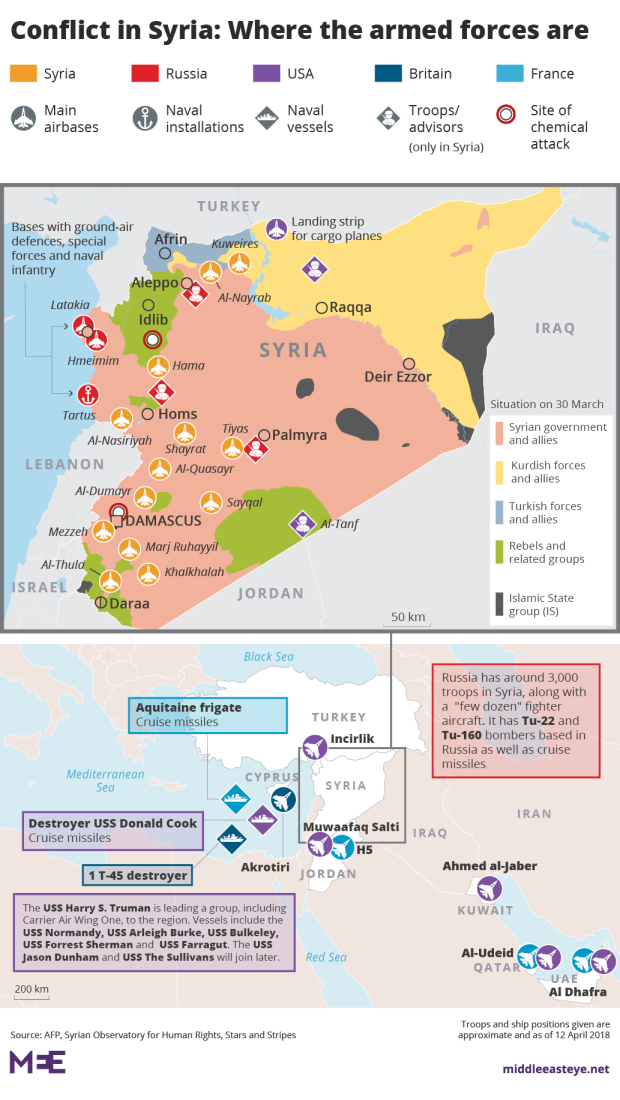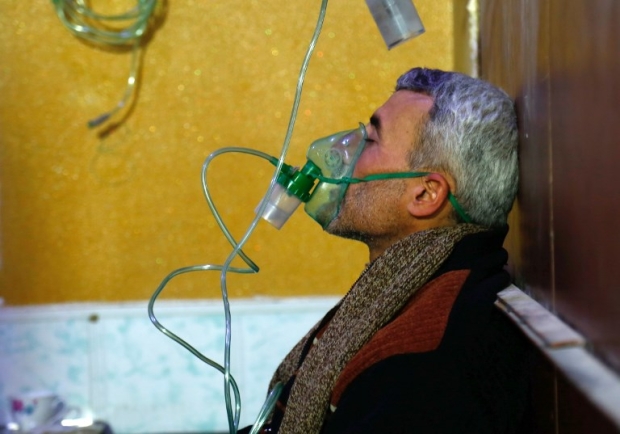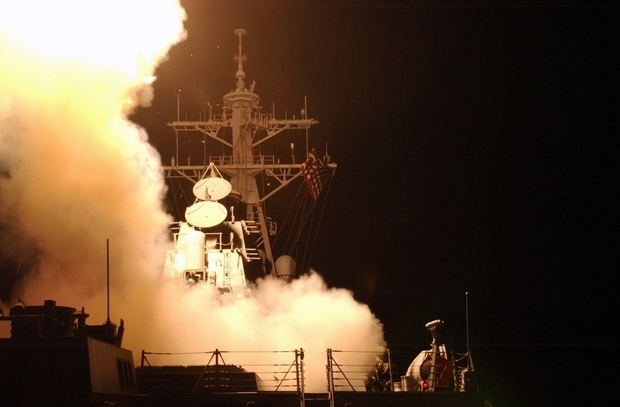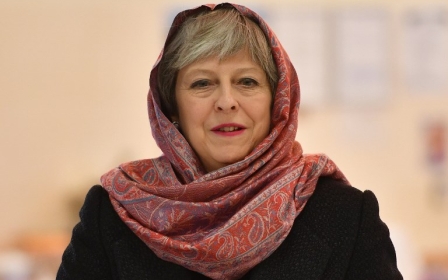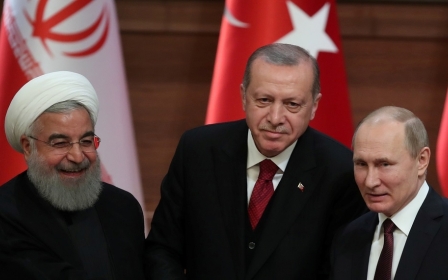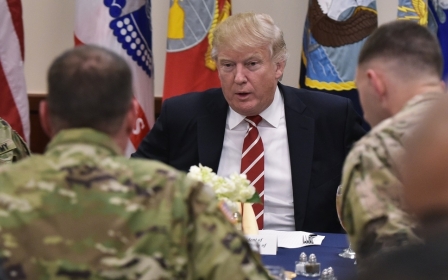ANALYSIS: May heads into Syria as junior partner to trigger-happy Trump
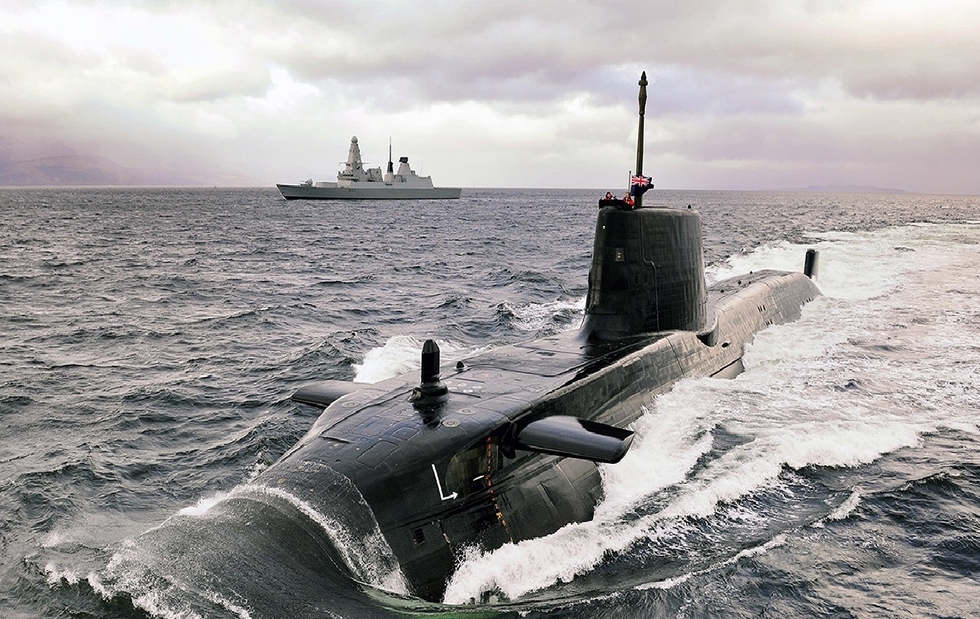
Theresa May is facing questions over the legality of committing UK forces to any US-led attack on Syria, even as Royal Navy submarines and RAF jets prepare for the UK's first military action against another government since the 2011 Libya campaign.
May's national security team were believed to call for strikes and presented new evidence blaming Bashar al-Assad for the "barbaric" attack at a cabinet meeting on Thursday afternoon, despite warnings from legal experts that UK air strikes would not be clearly supported by a "right of humanitarian intervention" under international law.
Nevertheless, the British government is firmly behind the US president, Donald Trump, who has already told the Syrians and Russians that missiles "are coming".
May is also facing opposition from the Labour Party, amid questions over whether UK forces will be able to make a meaningful contribution to the air campaign.
The former head of the Royal Navy has told MEE that UK involvement in the initial stage of any intervention would likely be limited to submarine-launched cruise missiles and intelligence assets.
Lord Sir Alan West, a former first sea lord and Labour security minister, said: "If we have absolute certainty the Assad regime carried out this attack, we have to decide whether to give him a wrap across the knuckles or really make his eyes water, in which case it will require a three to four day air campaign to take out his integrated air defences, chemical weapons sites and his means to deliver them."
The safest, and most cautious, point of view is that the intervention would not be legal as there is no right of humanitarian intervention
- James Sweeney, law professor
West said this sort of air campaign risked hitting Russian forces who work alongside Syrian forces at Assad's air defence sites.
He added: "Clearly the US can do this alone, but there is a lot of merit for them and us, in involving the UK. They find us extremely valuable in a diplomatic sense, and we can also bring something to the party in the form of submarine-launched TacToms [Tomahawk cruise missiles]."
MEE understands that one or more Royal Navy submarines, armed with Tomahawk cruise missiles, will be in range of Syrian targets by Thursday evening, while Type-45 destroyer HMS Duncan, armed with an advanced air defence missile system, is on routine operations in the central Mediterranean and is likely to be manoeuvred to operate alongside US vessels or to provide defence for the Royal Air Force (RAF) base at Akrotiri in Cyprus.
At Akrotiri, RAF fast jets are also ready for action, including Tornado bombers armed with Storm Shadow missiles, which can be launched from outside Syrian airspace. Typhoon jets are standing by for air defence and possible ground-attack missions on chemical weapons sites.
US forces will dominate
But, West said that the initial stages of any air campaign will be dominated by US stealth aircraft and cruise missiles, with only a minimal deployment of UK forces. France has 10 cruise-missile equipped jets based in the Gulf, and has the capacity to launch around 50 cruise missiles.
Neither the UK or France has an aircraft carrier available to deploy to the region.
West said the next stage of the air campaign would see US electronic warfare aircraft acting as "capability enablers" to blind Syrian defences and allow US, French and UK jets to take out additional anti-aircraft sites and chemical weapons stockpiles.
"To pretend that this attack will not be dominated by US forces is stupid, but they will be keen to have additional UK assets and capabilities," he said."RAF Tornado and Typhoon jets are very practised at flying over Syria and have very advanced precision weapons. We also own very serious intelligence assets, especially those based in Cyprus."
There are fears though that any sustained air campaign in Syria will risk hitting Russian troops who operate Syrian air defence sites and radar installations, West warned. "And when it comes to Russia hitting back, they couldn't feasibly hit a submarine or a US carrier - it would be too difficult for them - but they could launch cruise missiles at the RAF base in Cyprus."
An analysis of Syria's air defence by experts at the Royal United Services Institute (RUSI) has also warned that the linking of the advanced Russian S-400 system to Syria's air defence network will leave US, French and UK warplanes with "restricted options".
'Have we forgotten the lessons of Iraq?'
Warnings over the risk of Russian casualties came as Labour leader Jeremy Corbyn said that US-led intervention in the country could "escalate the conflict beyond belief" and that "more bombing, more killing, more war will not save life".
He said: "Just imagine the scenario if an American missile shoots down a Russian plane or vice versa. Where do we go from there?
"Parliament must be consulted on this. Surely the lessons of Iraq… are that there's got to be, there has to be a proper process of consultation."
Corbyn's intervention came as there was increasing discussion in Westminster over the role of parliament in authorising action, and whether any US-led air strikes would be legal under international law.
James Sweeney, professor at Lancaster Law School, told MEE that military action has not been authorised by the United Nations Security Council and that the US, France and the UK could not claim to be acting in self-defence under international law.
"The safest, and most cautious, point of law is that the intervention would not be legal as there is no right of humanitarian intervention, and this obviously doesn't involve the UK's right to self-defence," he said.
However, he said that government lawyers "might argue" that an "emerging customary international legal norm" allows for the use of force to prevent the use of chemical weapons and punish states that use them, following the use of force for humanitarian reasons in Kosovo and Libya.
"The Chemical Weapons Convention absolutely does not mention using force in a case like this, but emerging customary international legal norms are a big deal. It is one of the main sources of law, and if I were the UK attorney general I would argue that we are witnessing the evolution of the law around the use of force," he said.
Sweeney also said there was a "live debate" over the evolving right of the use of force in humanitarian interventions.
'A very delicate situation'
May appears to have the support of key cabinet colleagues and looks likely, initially at least, to defy calls from Corbyn to follow recent convention and allow MPs a vote over military action.
Speaking in London on Thursday morning, Brexit Secretary David Davis, who voted against intervention in Syria in 2013, said the situation was horrific and the international community must act to prevent the use of chemical weapons.
He said: "But also it is a very, very delicate circumstance, and we've got to make this judgment on a very careful, very deliberate, very well thought-through basis, knowing exactly ... how strong the evidence is."
He said he had been "assured" that government would provide clear "evidence and intelligence" linking the attack to Assad and that there was a "proper plan".
Discussions in London came as French President Emmanuel Macron said that France has proof that chemical weapons were used by the Syrian government.
May will have welcomed Macron's comments and was also given the backing of key backbenchers on Thursday.
Tom Tugendhat MP, chair of the influential Foreign Affairs Select Committee, told BBC Radio 4's Today programme that the government does not need a Commons mandate to take part in air strikes.
He said: "What we're doing is dealing with a violation of the 1925 Geneva gas protocol, and exercising the 2005 responsibility to protect."
Fellow Tory Crispin Blunt MP, who recently co-authored a report on how the UK should respond to chemical attacks, said: "The British government is free to exercise its Royal Prerogative concerning any action in Syria, It must expect to make its case in arrears to Parliament. This could have been avoided with a preauthorisation resolution."
Sweeney added that May did not require parliamentary approval to launch air strikes. "The convention for consulting parliament on the use of force is a fairly new one, and I doubt its strength. I don't think there would be a constitutional crisis if Prime Minister May were to ignore it. Whereas it is unlikely she would survive if she lost a vote over action."
The political row came as a poll for The Times newspaper showed that only a fifth of British would support military strikes against Syrian military targets. More than two fifths oppose action, while the remainder were undecided.
Lindsey German, founder of Stop the War, said: "No one knows where this is going to end. You can see how this could spread very, very dangerously indeed."
Middle East Eye propose une couverture et une analyse indépendantes et incomparables du Moyen-Orient, de l’Afrique du Nord et d’autres régions du monde. Pour en savoir plus sur la reprise de ce contenu et les frais qui s’appliquent, veuillez remplir ce formulaire [en anglais]. Pour en savoir plus sur MEE, cliquez ici [en anglais].


